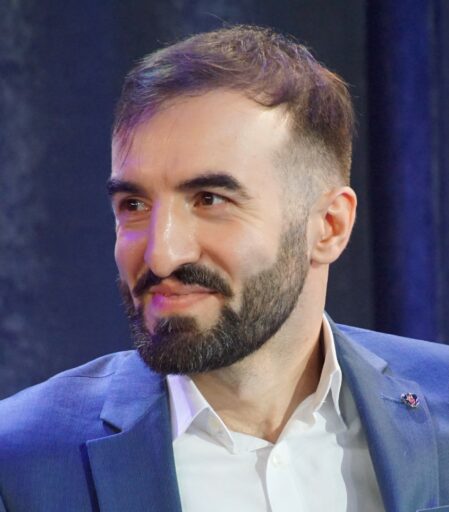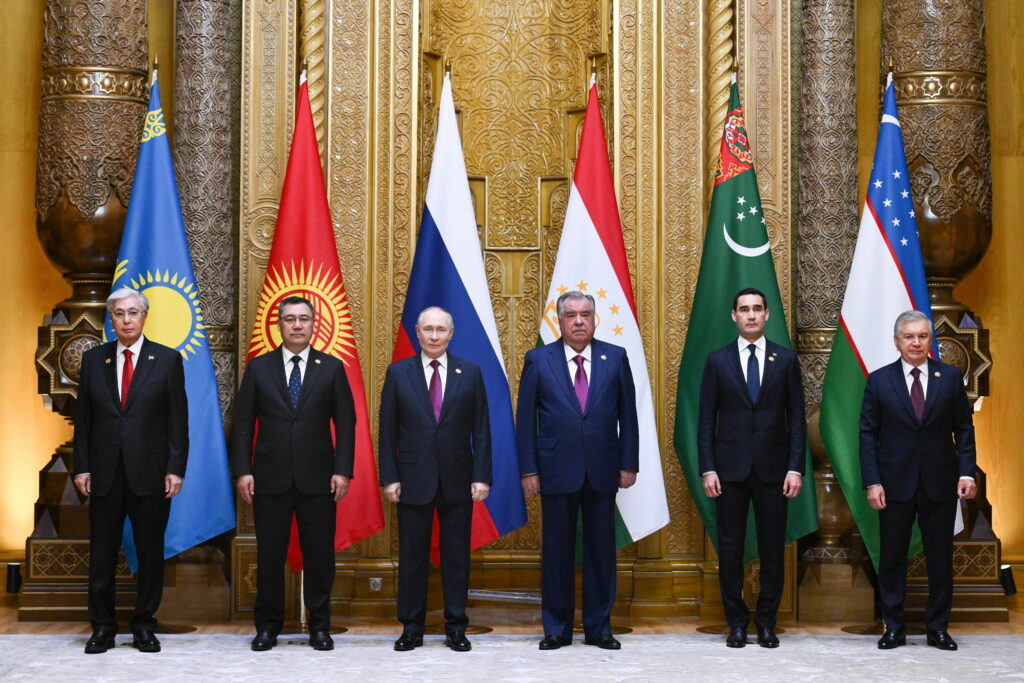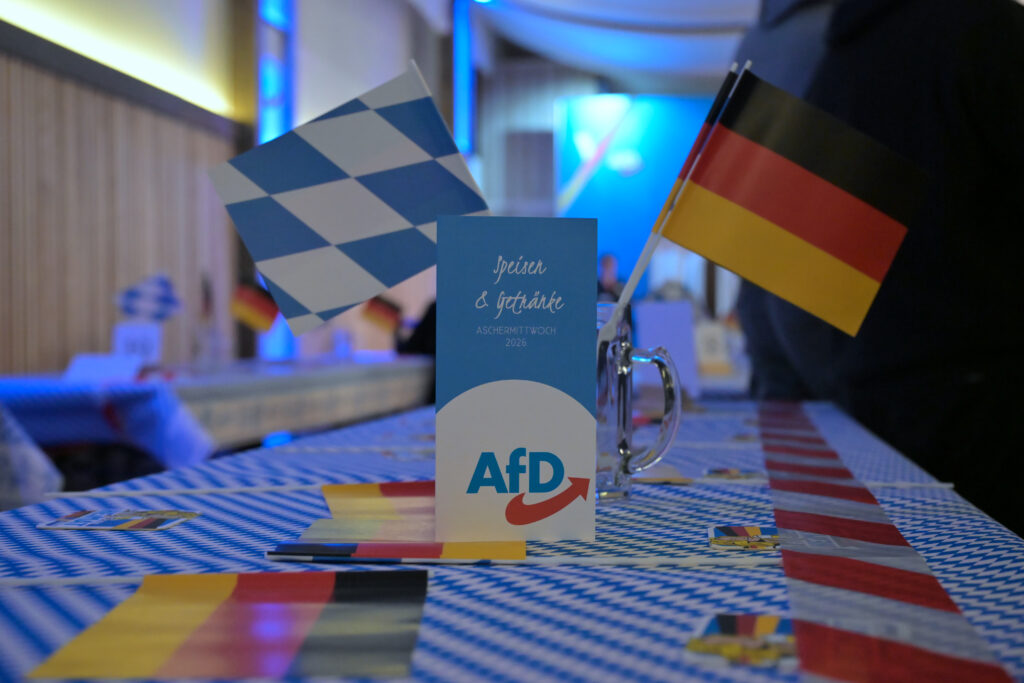The official results of Georgia’s parliamentary elections, which gave the ruling Georgian Dream party 54% of the vote, have been rejected by the Georgian opposition and President Salome Zurabishvili. International observers found numerous violations and a «complex pattern of fraud», and Brussels and Washington have not only called for an investigation into these electoral violations, but are planning to send a mission to Tbilisi to do so. But as soon as Georgia’s Central Election Commission officially approved the election results, the ruling Georgian Dream party cast prudence to the winds. One of its first initiatives was to nominate Mikhail Kavelashvili as its candidate for the presidency of Georgia. Kavelashvili is a former professional footballer without a university degree and a member of the current parliament who opposes his country’s euro-integration. He will be elected in December by the Georgian Dream majority electoral college and thus replace President Zurabishvili. Next, Georgian Prime Minister Irakli Kobakhidze announced that Georgia would refuse to negotiate its accession to the EU until 2028, and renounces any grants from the EU budget. Finally, the chairman of parliament, Shalva Papuashvili, who thought it unnecessary to invite foreign ambassadors to the first session of the new parliament, questioned the benefits of the country’s accession to the EU.
These steps provoked spontaneous protests across Georgia, which turned violent when police used force against demonstrators and President Zurabishvili declared herself the country’s only legitimate institution and the only person authorized to «speak to the world on behalf of Georgian society». She called on all members of the opposition, civil society organizations, Georgian ambassadors, the army and the police to fight the «constitutional coup», or «Russia will be here tomorrow».
The anti-Western policy that the Georgian Dream party has been pursuing in recent years and which has surprised even Putin, is interpreted by many experts and politicians exclusively through the prism of geopolitical confrontation between the West (or Europe) and Russia. This perspective shapes the public perception that the ruling party is pursuing a pro-Russian course, while the opposition forces are acting in the interests of Western countries. Since more than 80% of Georgian citizens support the country’s accession to the European Union (and European integration is enshrined in the constitution), any action that hinders European integration is automatically labeled as pro-Russian and therefore treasonous (Georgia officially considers Russia an occupier of its territory). This is why, for example, the recently adopted «foreign agents» law was described by Georgians as a «Russian law», and the recent elections as a «Russian special operation».
Meanwhile, it should be stressed that such a dichotomy, while legitimate, does not fully explain the actions of the Georgian Dream party.
Driving forces
From the moment Georgian Dream party came to power in 2012 and until the end of 2022, Georgia stayed on the European path and achieved tangible results, the most important of which were the signing of an Association Agreement with the EU, the approval of visa-free travel to Schengen countries for Georgian citizens, the inclusion of EU and NATO integration in the country’s constitution, and the granting of candidate status for EU membership. These achievements scored major political points for the party, ensuring convincing victories in the 2016 and 2020 parliamentary elections, and providing good support for winning the 2024 elections.
However, in recent years two major events have changed this trajectory. The first is the full-scale war in Ukraine, which made Georgia an important channel for circumventing the sanctions and trade restrictions imposed on Russia by Western countries. There was also a sharp increase in remittances, tourism and migration from Russia to Georgia. In the course of the full-scale invasion, Russia has become an important export market for Georgian goods (accounting for 65 per cent of exports of grape wine, 47 per cent of mineral and still water, and 34 per cent of alcoholic beverages). Russian citizens have registered about 40,000 companies in Georgia (8% of all registered companies in the country). In 2023, Georgia’s revenues from Russia reached $ 3.1 billion (or about 10% of GDP) and Russia became Georgia’s second largest trading partner with a trade turnover of $ 1.4 billion. In the same year, 1.4 million Russians (20% of the total number of tourists) visited Georgia. Against this backdrop, Georgia is experiencing significant economic and welfare growth: between 2021 and 2023, its GDP increased by 62%, average monthly wages by 36% and state budget revenues by 46%. No less important, however, is the fact that relations with Russia have enriched not only hundreds of Georgian companies, entrepreneurs and middlemen, but also the top of the Georgian political elite. Investigative journalists regularly discover their various assets and business interests in Russia. Opponents of the authorities and relevant non-governmental organizations are becoming increasingly vocal about the corruption of the country’s elite.
The second landmark event is Georgia’s attainment of EU candidate status, which forced the authorities to meet nine conditions set by the European Commission for further progress in European integration. Each of these conditions requires serious reforms. Georgia’s top judiciary is suspected of nepotism and clannishness, and some senior judges are on the US sanctions list for their involvement in corruption, so the European Commission is urging Georgia to reform the judiciary. A specially created commission of international experts should vet judges for integrity, absence of conflicts of interest, conformity of income with declared assets, etc. The commission should have the power to decide on the dismissal of judges and the approval or rejection of new candidates for appointment as judges. The Georgian Dream party claims that such measures violate the sovereignty of the state and weaken the legitimacy of the judiciary. The party does not oppose the suspension of the process of verifying the asset declarations of individual judges and is generally confident that «all systemic problems in the court have been eradicated». Therefore, there has been no tangible progress in judicial reform. This is also true of the European Commission’s other recommendations, especially since Georgia’s progress towards European integration threatens Georgian Dream and its founder, Bidzina Ivanishvili, with a loss of power.
Strategy and mistakes
In fact, the war in Ukraine created new economic opportunities for Georgia, the Georgian Dream party and those close to it, while European integration threatened the loss of these opportunities and power. The combination of these two factors predetermined the party’s electoral strategy: to maintain its majority in the Georgian parliament at all costs and to consolidate authoritarian control over the country through repression, disinformation, anti-Western and conspiratorial rhetoric. This is not the strategy of pro-Russian politicians, but of a group of individuals concerned with their own survival and enrichment.
Victory in the recent elections convinced Georgian Dream party that its strategy was working and that Georgian society was accepting its results with little resistance. But the party seems to have miscalculated its strength when, in response to the European Parliament’s refusal to recognize Georgia’s election results and calls for personal sanctions against Georgian Dream leaders, it went on the offensive and, on the same day, suspended EU accession talks. It lost sight of the fact that during the years when euro integration was the country’s main course, a new generation had grown up in Georgia, imbued with the spirit of freedom, democracy and human dignity, a generation ready to fight for the country’s European future. And then the «dreamers» made the same mistakes that a famous Georgian (Stalin) warned his fellow party members against almost 100 years ago in his article «Dizzy with Success»: loss of sense of proportion, loss of the ability to understand reality, overestimation of one’s own strength and underestimation of the strength of the enemy.
The decision by Georgian Dream party to freeze membership negotiations with the EU, coupled with the sense of impunity with which law enforcement forces have recently used violence against young protesters on the streets of Tbilisi, has shocked broad sections of Georgian society. Hundreds of employees of various state agencies and judges have publicly protested against the decision, some Georgian ambassadors and officials of the Georgian Foreign Ministry have resigned, several schools and universities have suspended classes, a number of organizations and social movements are preparing strikes, and there is no end in sight to these processes.
The demonstrators do not represent any distinct political force and their protests are spontaneous and obviously aimed at the resumption of Georgia’s European integration process. But the Georgian Dream party has turned the deaf ear to these demands and blames the violence of the demonstrations on «European politicians and bureaucrats, local agents, the fifth column represented by four political parties».
The longer the authorities ignore the protesters, the louder the calls in Tbilisi for new parliamentary elections and personal sanctions against those responsible for the falsifications. President Zurabishvili has announced that she will not resign when her mandate expires in mid-December, insisting that she will continue to serve until a new president is elected by the new parliament. At the same time, opposition forces are preparing to form an alternative parliament. Against this background, the Baltic states agreed to impose individual sanctions at national level «against those who suppress legitimate protests in Georgia». The US announced the suspension of its strategic partnership with Georgia, and the EU’s new representative for foreign affairs, Kaja Kallas, acknowledged the possibility of imposing sanctions on the Georgian authorities.
The Georgian Dream party has plunged the country into a political crisis and itself into a state of active confrontation with society and international isolation, demonstrating its willingness to put its own interests above the strategic goals of the state. Ignoring the growing discontent of citizens for whom European integration is not just a political course, but a question of national identity and future, only exacerbates this divide and threatens the long-term stability and development of the country.










